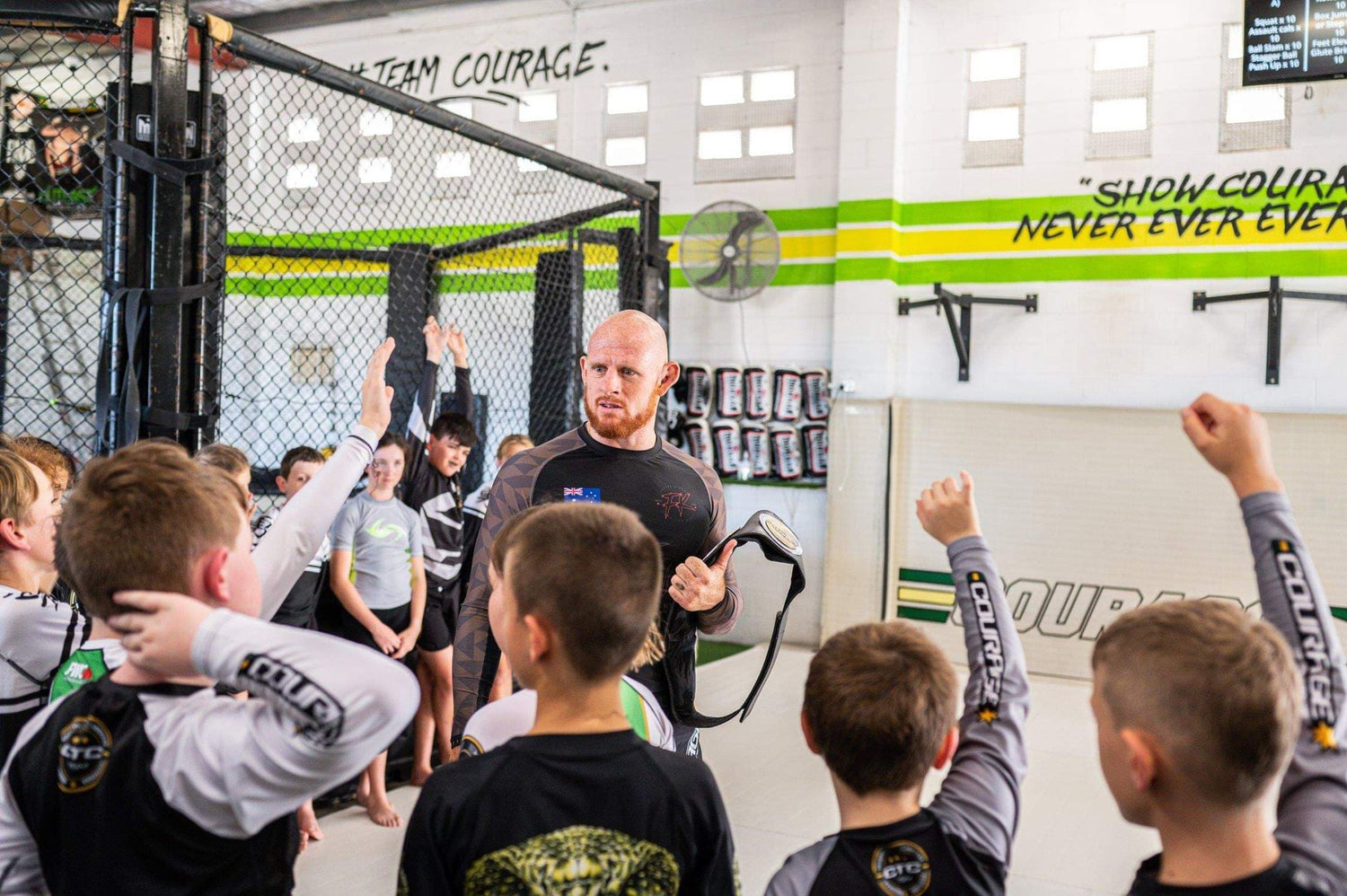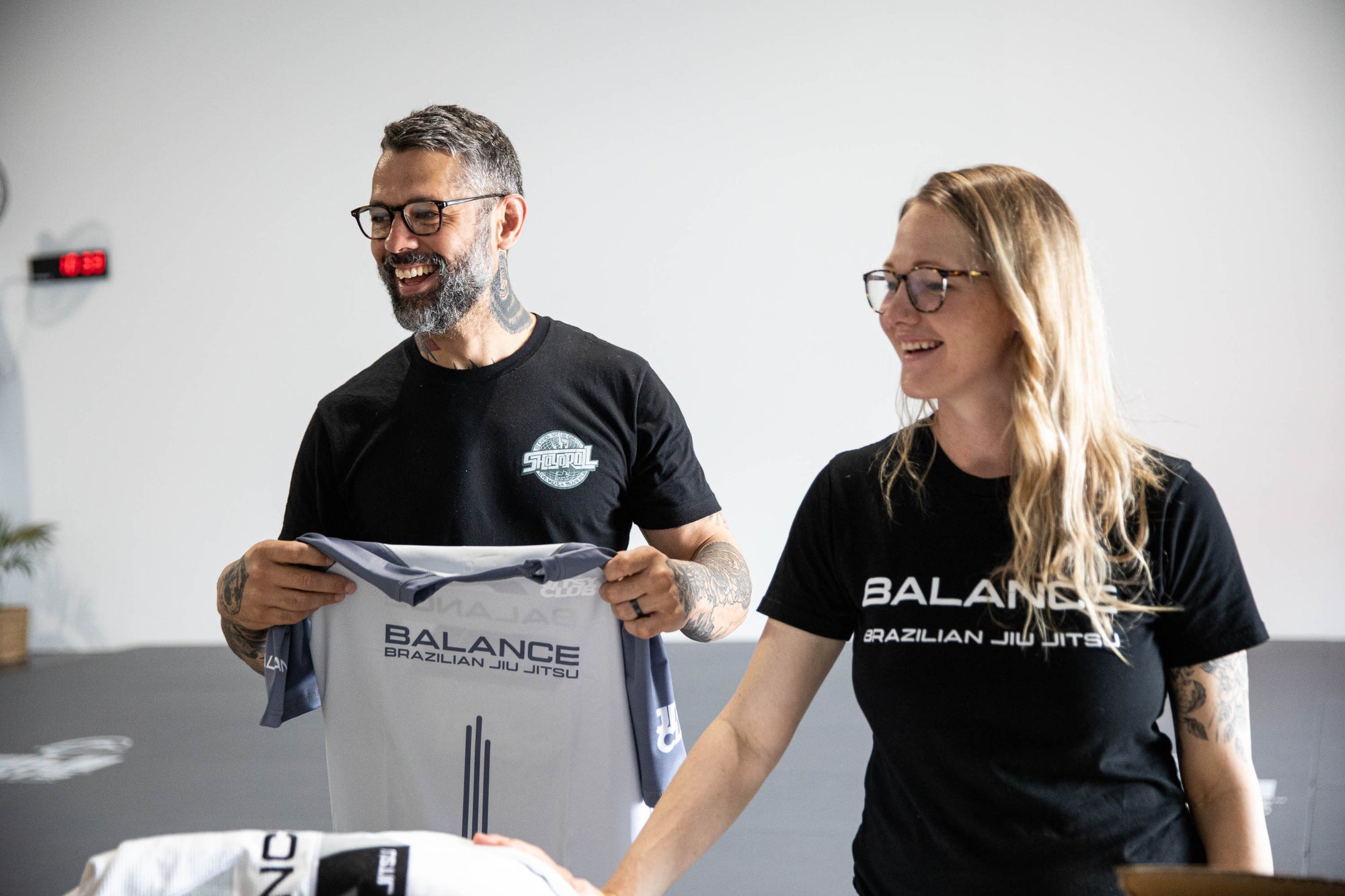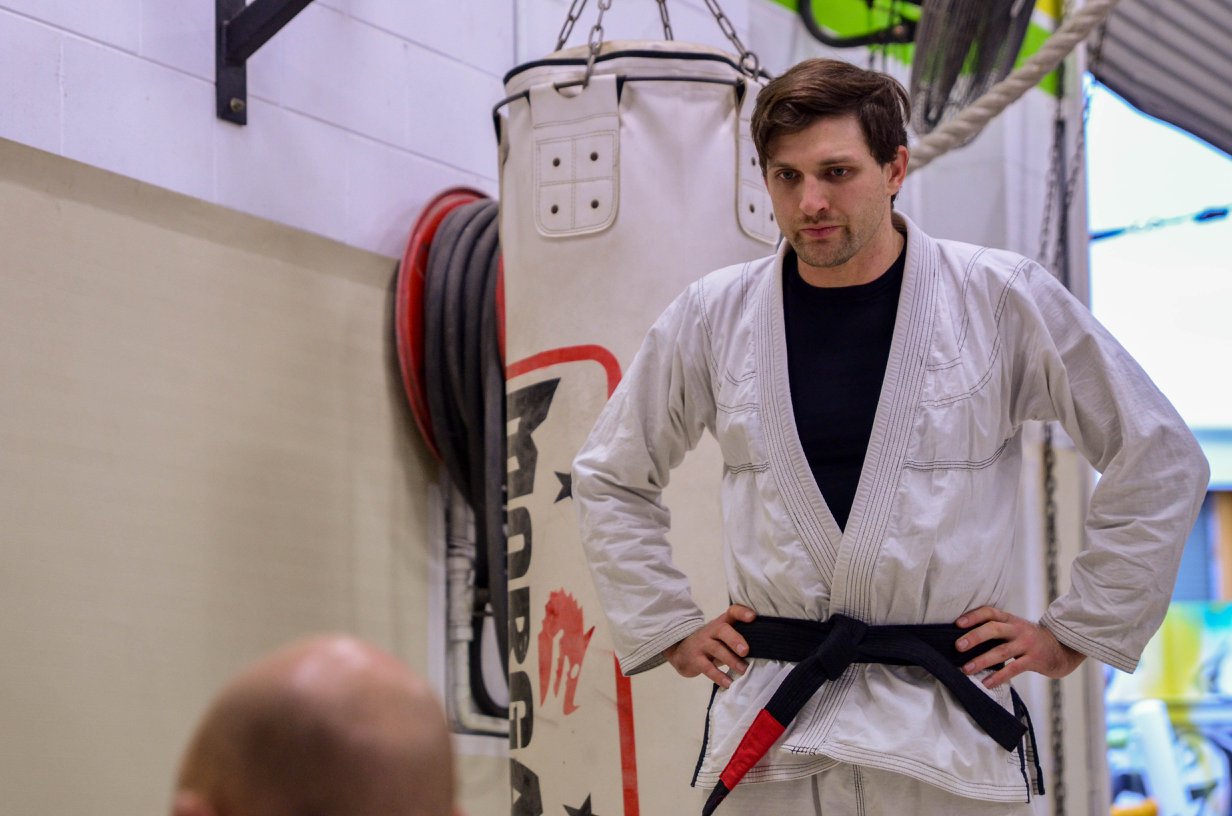Coaching; it's often the final stop for most martial arts practitioners, acting as both a chance to rest a little easier after a life spent in combat, and an opportunity to pass down what's been learned inside the cage, or on the mats, to a receptive audience.
For Ian Bone, head coach and owner of Courage Training Centre, teaching was the first step on his martial arts journey.
"For me, I've always tended to gravitate towards giving back," Bone says of what led him to take up coaching.
"I don't know whether it came from my dad being a cricket coach, but I started coaching when I was around 14, I coached an under 9s teeball team."
It's a philosophy that carried through and was re-affirmed by Bone's time in the Australian military, where instructing became a responsibility of his trade.
"Once you learn something in the military, it becomes your job as a senior soldier to make sure you taught it back to your group, and as a section commander, you're running lessons and leading people in a small setting," Bone said.

"It's always been a natural progression for me, I think once I do something, I feel confident taking that and coaching it back."
"There's a tendency for people to think that they don't need to be able to do something before they can teach it, whereas I've always felt the opposite, I didn't become a fight coach until I had fought, if people come to me for martial arts training, it's nice for them to know that I've taken martial arts as far as I could given the timeframe I had."
After leaving the military, Bone pursued martial arts in the cage, training in both Brazilian Jiu-jitsu and a variety of striking arts on his way to a 10-7 record as one of the Australian regional circuits most adept finishers.
Bone had never won a fight by decision at the time that he hung up the gloves, with seven of his 10 finishes coming by way of submission.
"It was something I'd always wanted to learn; how to fight with my hands properly, it was an itch that wasn't scratched in the military even though I served for eight years in an infantry battalion," Bone said of the switch to martial arts.
"Getting out is a pretty long process and my wife was pregnant, so I gave up drinking and instead of going to the pub, I started going to the only BJJ place I could find in the cities, it was sort of no holds barred, not mixed martial arts, but we did little bits of full contact karate one day, then grappling the next."
Being on the forefront of the Australian regional martial arts scene gave Bone a taste of not just the evolving styles of Jiu-Jitsu necessary to stay competitive with some of the upcoming fighters, but also a glimpse at how much progress was still waiting to be made in coaching.
"It's come a long way since then; my first coach wouldn't travel away with me until l'd had my fourth fight, whereas I can't imagine sending one of my guys away with not being there, I get a little sad just missing out on a jiu-jitsu competition," Bone said.
"The type of support expected from coaches has definitely levelled up."
"There's absolutely been progress, Australia's got a rich history in Thai kickboxing and boxing, so the ability for our guys to get good at striking as well is really progressing, with guys like Robert Whittaker and Alex Volkanovski leading the charge, the info is out there."
While the initial stages of Bone's martial arts journey were mostly spent in regional areas, through more of a whisper network of like-minded veterans and martial arts enthusiasts, the sports like Brazilian Jiu-Jitsu that form the bedrock of modern martial arts have experienced huge growths.
"We do have access to these things and all these competitions now, the ability for people to get good experience in grappling is there, in a way it wasn't before," Bone said.

But despite the organisational leaps made by coaches and former fighters like Bone and Anton Zafir in the sport's regional recesses, there are still personal challenges that make the pursuit of martial arts challenging for modern coaches.
"The biggest challenge is realising that it's difficult to do both at the same time well, because you do have divided attention, there's definitely a different focus between being an athlete and a coach," Bone said.
Bone has seen, and experienced, a wide slate of that evolving experience through his involvement in the Queensland martial arts scene.
Alongside the aforementioned Zafir, who coaches out of the Northern reaches of Queensland, Bone has also enjoyed the company and shared experience of other world-class fighters and coaches such as Damien Brown.
The three friends have shared each other's corner on more than one occasion and regularly travel to teach, and learn from one another as part of the emerging, and rapidly developing Jiu-Jitsu and MMA landscape occupied by northern Australia.
A brown belt in his own standing, by way of Paul Cale and Jean Jacques Machado and has had both teach at Courage on multiple occasions, Bone has also felt taxation of a life spent in combat in more ways than one.
"It's hard to change your identity in that way, people might expect you to continue fighting once you're coaching, because people look up to you in that role and might want you to still be that," Bone said.
It's a network filled with ex-UFC and other high level competition talent that's not only kept Bone travelling the world and constantly honing his own skills, but has allowed for rapid development otherwise unavailable in rural and remote regions of North Queensland.
"It's a natural progression to give back to your club, I started in 2005, so it's been 15 years of hard training and competing, already after a military career, my body was starting to fall apart a bit, so for me the change made sense and I was able to lessen the intensity of my training a little."

But the change has also been philosophical and not just practical, with a community minded focus that's helped forge Courage Training Centre into one of the BJJ and martial arts strongholds in North Queensland.
"Not everyone's meant to be a coach or to make that change, but it's part of the journey to be looking to give back to your club, even if you're paying a membership, you should be looking to invest back into that community, the more you ingest, the more you get out of it and the richer your experience will be."
"It's about being a giver and not just a taker."
Written by Edward Shirkie
Photos: Linde Bone Photographer



